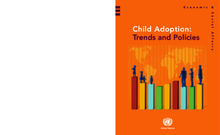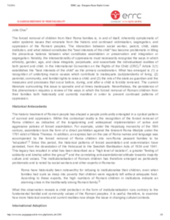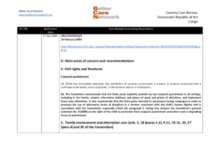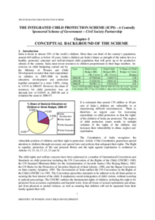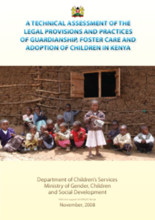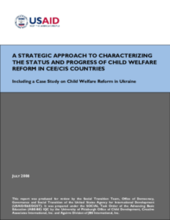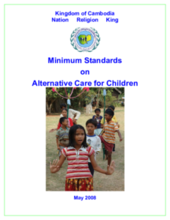Displaying 611 - 620 of 661
The study provides a solid foundation for furthering research on child adoption and, more specifically, on the demographic factors that shape the demand for and the availability of adoptable children.
Explores particular vulnerabilities that arise for Roma children and families in regards to care as a result of social marginalization
This country care review includes the care-related Concluding Observations adopted by the Committee on the Rights of the Child.
This country care review includes the care-related Concluding Observations adopted by the Committee on the Rights of the Child.
In 2006 the Indian Ministry of Women and Child Development proposed the adoption of an Integrated Child Protection Scheme (ICPS), which was adopted and launched by the central government in 2009-2010. Recognizing chronic under funding of child protection services in the country and major gaps in the system, the ICPS was expected to significantly contribute to the realization of Government/State responsibility by creating a system that would effectively and efficiently protect children.
This technical assessment report uses a transformative social protection framework adapted for studying the provisions and practice in alternative care and adoption in Kenya.
Evaluates the need for reform within Nepal's intercountry adoption programming and the broader needs within the child protection and alternative care arenas nationally.
The purpose of this report is to create a strategy for assessing the status and progress of child welfare reform in CEE/CIS countries using the best available quantitative and qualitative information.
Evaluation of need for systemic strengthening and partnering to ensure protection of children without parental and children involved with ICA
This document includes the Minimum Standards on Alternative Care for Children set out by the Government of Cambodia, including both the Minimum Standards for Residential Care for Children and the Minimum Standards on Alternative Care for Children in the Community.

